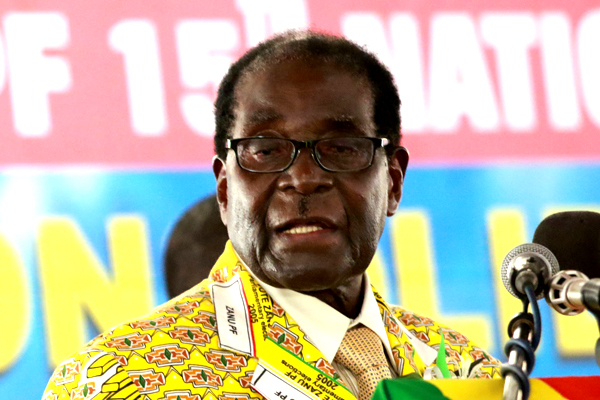
Reports that the Parliamentary Committee on Energy has raised a red flag on Zimbabwe’s high taxes and a cocktail of statutory levies pushing investors away from the country’s energy sector at a time the country is facing serious power shortages must be taken seriously if the country is to grow the economy and avert the power crisis.
NEWSDAY COMMENT
No doubt the continued existence of the prohibitive taxes and legislation presents a huge challenge that dampens all efforts to revive the comatose economy.

Economists have attributed the current economic crisis the country is facing to the President Robert Mugabe-led government’s inability to attract foreign investors, due to many reasons that include the opaque indigenisation laws and a punitive tax regime.
Efforts to improve the Ease of Doing Business and open up the foreign investment market that will generate the much-needed foreign capital in the economy have all come to naught due to some government ministers’ intransigence.
Without Mugabe’s commitment and/or action, the business symposia to improve the business climate will remain talk shows while Zimbabwe’s economy continues to sink into a hellhole. The results of this conflagration are there for all to see.
Government is struggling to pay its employees, and there is mounting debts and continued retrenchments by both government and private firms due to low business.
Therefore, the call by the Parliamentary Committee on Energy is worth noting. It should jolt government to review some pieces of legislation inhibiting the ease of doing business in the country to reboot and grow the economy.
- Chamisa under fire over US$120K donation
- Mavhunga puts DeMbare into Chibuku quarterfinals
- Pension funds bet on Cabora Bassa oilfields
- Councils defy govt fire tender directive
Keep Reading
It is imperative that Parliament takes a leading role in revisiting and revising the country’s investment laws so as to promote entrepreneurship among Zimbabweans.
One cannot imagine the Environmental Management Agency demanding $22 million as environmental impact assessment fees for the expansion of the Hwange power project from the same investor that is supposed to pour more funds to build and expand the power generation plant at a time Zimbabwe is facing a critical shortage of electricity. We believe while investors must pay various taxes, they should not be charged in a manner that suggests they should lubricate the wheels of bureaucracy to get things done when the project is in the national interest.
How many investors will have that kind of money? Is there any guarantee for their investment return given the instability rocking Mugabe’s Zanu PF government?
Zimbabwe’s seriousness in wooing investors can only be seen in the way it treats foreign investors and visitors alike. Government should come up with a feasible fee structure that attracts investors.
This should include streamlining and revamping investment taxes for foreigners and any Zimbabweans willing to get into business. Having more investors would create more job opportunities and widen government’s tax base.
According to Zimbabwe Investment Authority chairman Nigel Chanakira, the country processed investment applications worth $3 billion in the first nine months of this year, but very few of the investments have materialised.
Political posturing remains the country’s major threat. Mugabe must whip his Cabinet into line to minimise discord and review investment laws to make them more attractive to investors.
We urge Members of Parliament to checkmate the Executive to improve the business environment and minimise the suffering of the majority of Zimbabweans.







